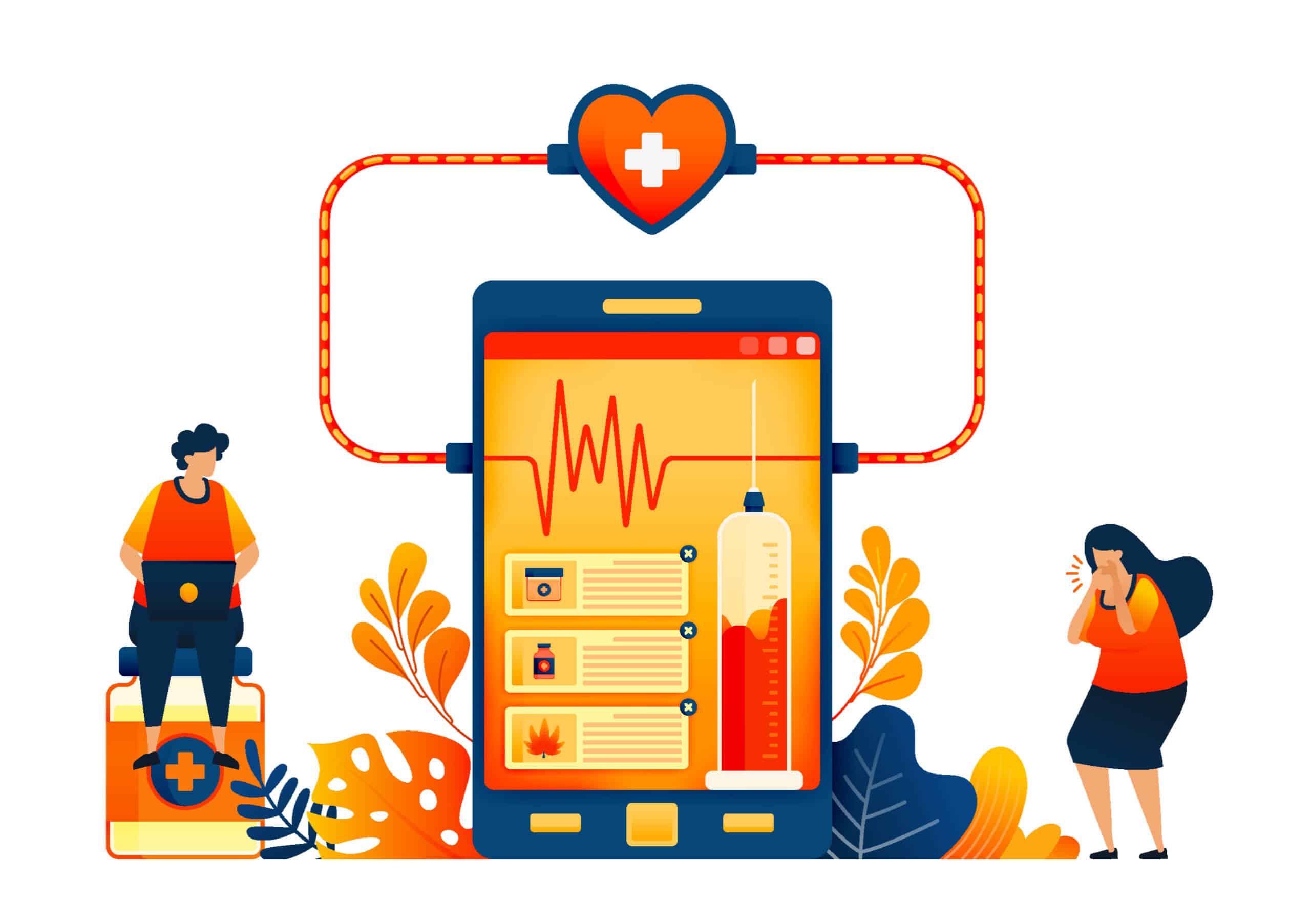- Remote doctor appointments, on demand health information, among other telehealth features are being demanded by people all over in today’s world. As the world continues to evolve, more enterprises are seeing the benefits of this transformation. Recently, healthcare is one of the industries that is benefiting the most from these changes. Want to know more about the impact technology is having on this space? Keep reading to discover how digital transformation is revolutionizing the healthcare industry.
The healthcare industry today
The healthcare industry is vast and continuing to grow. Research shows that
health spending in the U.S. will reach $5.7 trillion by 2026. With so much growth in the industry, it’s no surprise that things are changing fast. Technology has always been a part of that equation. However, in the past, other hesitations were holding this industry back from real transformation.
McKinsey reports that the barriers to digital transformation in the healthcare space aren’t related to technology. Instead, accomplishing this initiative requires a culture shift inside of these organizations. As a result, it has been challenging to convince healthcare industry leaders to embrace this change. However, as patients’ needs evolve, healthcare organizations are more willing to adapt.
Why we need digital transformation in the healthcare industry
Digital transformation helps organizations provide a better experience for their staff and patients. The demand for these organizations continues to increase, and this shows through massive job growth. According to data from the
Bureau of Labor and Statistics, there will be a 22% increase in healthcare industry employment in 2022. This space is adding more jobs than almost any other occupation.Increasing the number of staff is one way to meet demand, but now organizations are also seeing the value of embracing technology. Having new approaches and solutions improves the quality of patient care. It also allows healthcare organizations to be more efficient. Now, technology is a critical part of the way these organizations provide optimized patient care. That’s what makes these positive changes possible.Simply put, healthcare organizations have work to do if they want to keep up with today’s world. Digital transformation can streamline processes and boost productivity, which pushes the industry forward. Now, let’s take a closer look at digital transformation is reshaping the healthcare space.
What are the benefits of digital transformation in the healthcare industry?
There are a few specific areas where organizations and patients can see the impact of new technology. Here are some of the ways that digital transformation is driving change in the healthcare industry.
On-demand healthcare
We’re used to having everything we need, just a click or a tap away. Now, many patients have the same expectations for healthcare. They want to be able to schedule appointments and access medical information at their convenience.The need for efficient scheduling is even more evident when we consider data on patient engagement. An
Accenture survey shows that 77% of patients say the ability to book, change, or cancel appointments online is important to them. However, only 2.4 percent of appointments are self-scheduled. This low percentage is, in large part, because many organizations either don’t allow patients to self-schedule or the systems in place don’t work well.Resolving issues like this is possible with digital transformation. Healthcare organizations are using technology to make self-scheduling simple for patients. They are often also making it possible for patients to log in to a portal that gives them access to their medical information and test results.
Telehealth
Telehealth is another aspect of on-demand healthcare, and perhaps the most impactful as patients seek healthcare during the COVID-19 pandemic. This type of care allows patients to see a doctor and access medical advice from wherever they are. Medical professionals recommend these types of appointments for non-urgent situations, and they are a viable solution for routine visits. They also help healthcare organizations reduce their costs.Before COVID, a survey by Sykes provided exciting insights about telehealth. Almost 75% percent of those surveyed said they
weren’t familiar with telehealth services. Beyond that, the majority of people also haven’t tried telehealth. However, most people indicated that they would be willing to try this kind of care. Amid the pandemic, patients may only be offered virtual appointments with medical professionals for routine check-ups.The need for this type of service also goes beyond the growing interest and demand. For non-emergency appointments, telehealth can also keep patients and healthcare professionals safe. When patients can do visits remotely, they decrease their risk of exposure to viruses in acute care environments.
Faster test results
With AI and deep learning, healthcare organizations can deliver test results faster than ever before. This technology is a significant benefit for both patients and healthcare professionals. Patients get to spend less time stressing out about results, and healthcare professionals are free to focus on other tasks.
How to overcome challenges with digital transformation?
As a whole, digital transformation is changing the way the healthcare industry approaches business and care. However, this process can still be overwhelming. If organizations aren’t sure
where to start or
how to overcome a challenge, they may not be successful. It’s essential to
choose a partner to help you reach your goals and navigate the changing landscape.
Ready to embrace digital transformation?
If you want to start the digital transformation process for your healthcare organization, we’re here to help. Unosquare is a trusted partner for these projects. Our experience has proven that a successful digital transformation strategy needs to focus on two things. First, your plan must include ways to manage evolving business goals. These strategies also need to account for the cultural change that comes with those advancements. Using our proven Distributed Agile Framework, our software development engineers provide the kind of external perspective, agility, and understanding required for real innovation.When you partner with Unosquare, you’ll have access to skilled software development professionals, Business Analysts, SCRUM Masters, Quality Assurance Engineers, and all the ancillary roles for delivery of your strategy. Each of us at Unosquare is directly accessible to your project stakeholders. We also live and work in your time zone, and have the support and training from one of the best global software development companies in the world. To learn more about how we can help you accelerate the digital transformation process,
check out our blog. 


